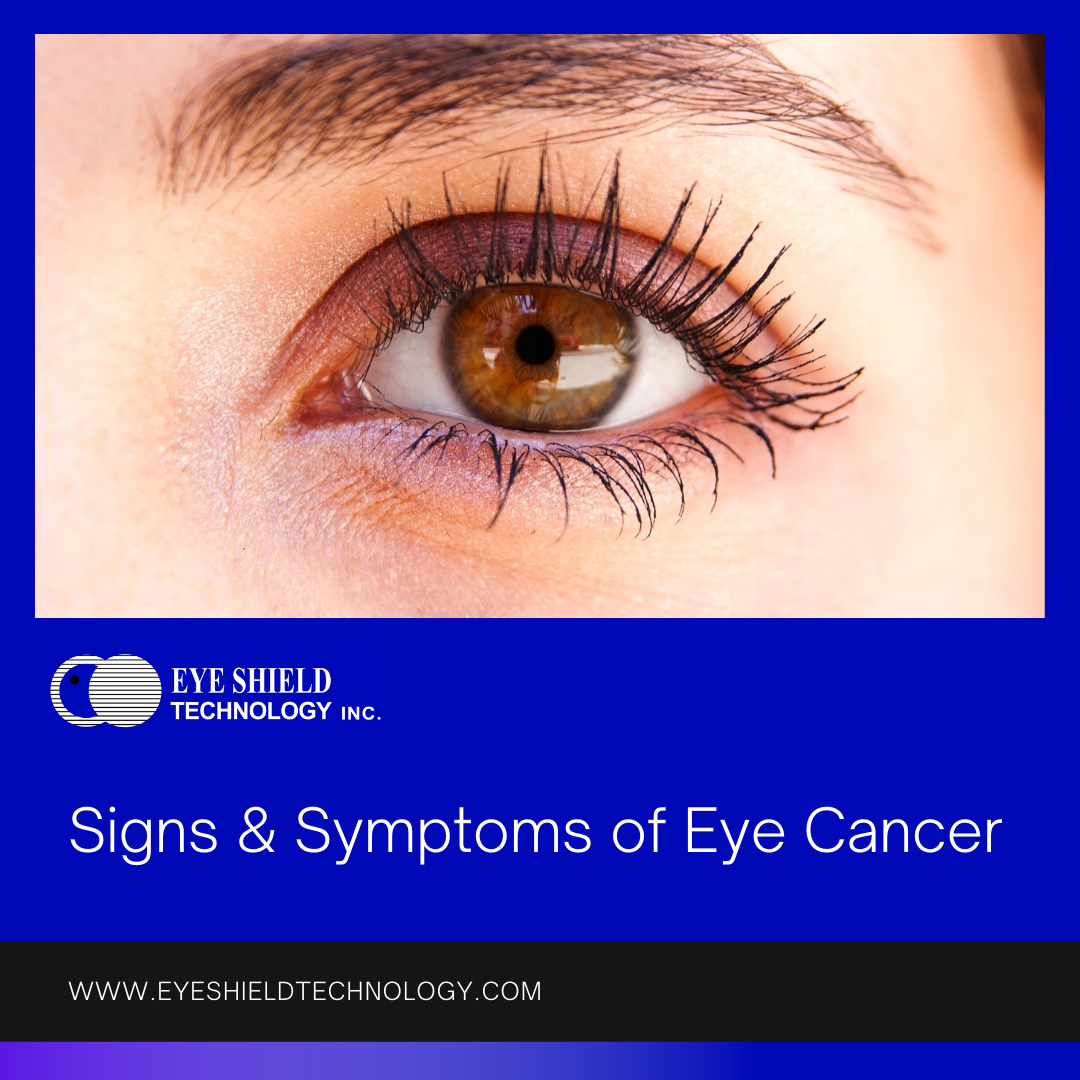Signs & Symptoms of Eye Cancer

When you first hear the word, “melanoma”, it isn’t likely that your first thought is ocular melanoma. Unfortunately, like other parts of the body, cancer can also occur in the eye. Just like any disease, eye cancer can vary person-to-person. It can be difficult to tell if you have eye cancer based on symptoms, given that many people don’t experience or notice signs early on. If you believe you or someone you know has ocular melanoma, consider these signs to look out for and who might be at a higher risk.
Symptoms
Eye melanoma typically forms in the part of the eye that is not visible when looking at your reflection. This makes it incredibly difficult to detect any physical signs. However, in some cases symptoms and signs show up as dark spots on your iris, suddenly seeing floaters, a change in shape of your pupil, or loss of vision. It is possible for eye melanoma to spread to other distant parts of your body, such as your liver, lungs, or bones. If you suspect you have ocular melanoma, it is crucial to seek attention from your ophthalmologist.
Risks
There are specific risk factors for melanoma, including eye color. Those who have light color eyes are more prone to developing melanoma due to having less pigment. For the same reason, race also plays a role with caucasian people being more susceptible to eye cancer than those of darker pigmentation. Genetics can also be responsible due to carrying the disease, and then passing it to another generation. Finally, exposure to harmful UV rays from either sunlight or tanning beds should be avoided to lower risks.
Eye melanoma is not easily detected, but it is preventable. Be cautious when it comes to your eyes and keep them healthy by utilizing proper eye coverage. Wear sunglasses when outside, eyeshields after surgeries, and goggles when working in shops.
Eye protection is a priority of ours to help patients protect their improved vision. To learn more about protective eye-gear, contact us today!
